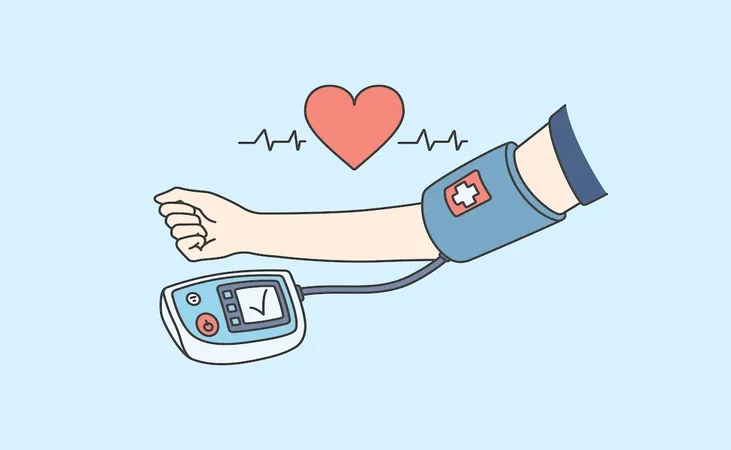
A "Tick"-ing Time Bomb: The Struggles of Lyme Disease in Manitoba
2025-04-05
Author: Jacob
Teya Friesen, a brave young mother from Winkler, Manitoba, is currently battling her second round of Lyme disease—a disease that went undiagnosed for over a decade, severely impacting her health and quality of life. After receiving specialized treatment in the United States, Teya is determined to raise awareness about Lyme disease while also seeking funds to support her ongoing recovery journey.
Friesen's plight began when she took to social media, posting on the "What's Up Winkler" Facebook page to offer odd jobs as a means to finance her treatments. "Lyme disease is a serious condition caused by the Borrelia bacteria, transmitted through bites not just from ticks but also mosquitoes, flies, fleas, and even spiders," she explains, debunking common misconceptions surrounding the illness.
Living with Lyme disease
The reality of living with Lyme disease is harsh. Friesen shared, "When Lyme affects your brain, it can cause brain fog, confusion, and memory loss. If it impacts your heart, you may experience palpitations, chest pain, and an irregular heart rate."
Friesen struggled with undiagnosed Lyme disease for over ten years, facing a slew of chronic health issues that numerous doctors misattributed to other conditions. Despite being tested for Lyme multiple times—always receiving negative results—she never gave up on finding answers.
In seeking alternatives, she turned to a naturopath who sent her blood samples to Germany for testing. The results confirmed her worst fears: Friesen had chronic active Lyme disease along with five other co-infections.
The road to recovery
Once diagnosed, Friesen underwent innovative natural treatments that made a significant difference in her health. However, her battle didn’t end there. In late 2024 or early 2025, Friesen experienced a relapse of Lyme disease. "My immune system is still not functioning as it should be," she explains, admitting that the shadow of the illness looms large even after treatment.
In her quest for healing, she sought specialized treatment in the United States involving a technique known as cranial biotic therapy. This method employs pressure points and magnets to re-magnetize the body and stimulate its natural healing processes. "It's like having someone tap your body while heavy magnets are used because your body resonates with electromagnetic frequencies," she describes, shedding light on her unconventional but effective treatment.
After her first visit in 2023, Friesen was declared free of Lyme disease, but the insidious nature of the illness struck again, making her return to the U.S. for more treatments. "They retested and confirmed, 'You’ve got Lyme disease again,'" she laments as she resumes her detox regimen.
Raising awareness and support
Despite the challenges, Friesen remains hopeful and committed to raising awareness about Lyme disease and alternative treatment options. The financial burden of her treatment weighs heavily on her. She advocates for community support, encouraging others to spread information about Lyme disease and consider offering donations or services to help those in need during difficult times.
In Manitoba, Lyme disease is prevalent, especially in southern regions such as Morden and Winkler. The Government of Manitoba warns that without early diagnosis and treatment, Lyme disease can lead to grave neurological, cardiac, and rheumatological issues.
What can you do?
To learn more about prevention and awareness regarding Lyme disease in Manitoba, visit the provincial health resources. You may also join the cause by supporting individuals like Teya Friesen as she navigates her treatment journey, reminding us all of the critical importance of awareness and action in the face of this harrowing disease.









 Brasil (PT)
Brasil (PT)
 Canada (EN)
Canada (EN)
 Chile (ES)
Chile (ES)
 Česko (CS)
Česko (CS)
 대한민국 (KO)
대한민국 (KO)
 España (ES)
España (ES)
 France (FR)
France (FR)
 Hong Kong (EN)
Hong Kong (EN)
 Italia (IT)
Italia (IT)
 日本 (JA)
日本 (JA)
 Magyarország (HU)
Magyarország (HU)
 Norge (NO)
Norge (NO)
 Polska (PL)
Polska (PL)
 Schweiz (DE)
Schweiz (DE)
 Singapore (EN)
Singapore (EN)
 Sverige (SV)
Sverige (SV)
 Suomi (FI)
Suomi (FI)
 Türkiye (TR)
Türkiye (TR)
 الإمارات العربية المتحدة (AR)
الإمارات العربية المتحدة (AR)